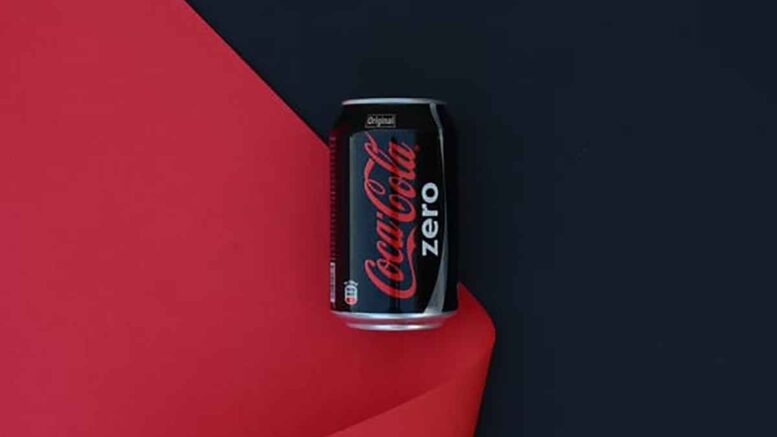The firm has positioned Coke Zero, also known as Coca-Cola Zero Sugar, as a healthier substitute for the conventional Coca-Cola Classic, which is sweetened with sugar. Many believe that Coke Zero is the ideal alternative for soda users striving to make healthier choices because it tastes much like regular Coca-Cola but has zero calories and sugar.
Still, if something seems too good to be true, it usually is. Let’s examine Coke Zero in more detail and determine whether it is safe for diabetics, who are particularly concerned about their blood sugar levels.
Describe Coke Zero

Since its release in 2005, Coke Zero has been marketed as a low-calorie, sugar-free substitute for all other sodas. Despite being launched in the 1980s, Diet Coke differs from the original Coca-Cola in both flavor and constituent composition.
Even though Diet Coke is incredibly well-liked, Coke Zero was created to appeal to consumers who preferred the original Coca-Cola flavor combined with Diet Coke’s alleged health advantages. Diet Coke and Coke Zero both have no calories, but Coke Zero seems more genuine.
Coke Zero is a calorie- and sugar-free alternative of Coca-Cola. As a result, Coke Zero lacks any substantial nutritional content, which may or may not be beneficial depending on your needs. Coca-Cola adds artificial sweeteners, which are becoming prevalent in healthy soda substitutes, to sweeten this low-calorie beverage.
Which Coke Zero Ingredients Should You Be Aware Of?
Acesulfame-K and aspartame are two common artificial sweeteners used in the production of Coke Zero. Diabetics should consider these two sweeteners before consuming Coke Zero, even if it has additional flavorings and colorings to mimic the original Coca-Cola.
What Dangers Do Diabetics Face When They Drink Coke Zero?
Despite a great deal of research on the subject, the full impact of artificial sweeteners on individuals with diabetes remains undetermined.
Even without discussing the possible hazards of Acesulfame-K and Aspartame, using artificial sweeteners can still have detrimental effects on your health. For instance, although artificial sweeteners don’t directly increase blood sugar, they might upset the delicate balance of beneficial bacteria in the intestines, which can have an impact on insulin sensitivity or hunger hormones.
Aspartame: This popular artificial sweetener can be found in a lot of diet beverages as well as other low-calorie snacks like gum. Aspartame is known to raise body mass index (BMI), even though studies have not found a strong link between it and rises in blood sugar.
Artificial sweetener Acesulfame Potassium, sometimes known as Ace-K, is frequently used in combination with other sweeteners in snack foods and a range of beverages. This research explains how Ace-K was connected to changes in gut flora and weight gain in an animal study.
This isn’t the whole story, even while the side effects of Ace-K and Aspartame aren’t clearly indicative of blood sugar elevation. According to multiple studies, artificially sweetened beverages, including diet sodas, can still contribute to a rise in diabetes cases.
It’s important to be aware of the risks and carefully assess how your body may react to different drinks, including Coke Zero, even though there is some contradicting evidence.
Artificially Sweetened Beverages and Type 2 Diabetes Risk: This is an illustration of a 14-year study that involved the observation of more than 66,000 women. The research findings indicated a direct correlation between the incidence of Type 2 Diabetes among women who drank artificially sweetened beverages at a greater rate.
Type 2 Diabetes and Diet Beverage Consumption: This 2018 study examined the association between artificially sweetened diet beverages and sugar-sweetened drinks in over 2,000 participants. The data clearly refuted the argument that diet sodas are healthier by indicating that there was no discernible benefit to switching from sugar-laden drinks to artificially sweetened drinks.
The aforementioned studies refute the idea that diet drinks are healthier than ordinary sodas nonetheless, the subsequent research comes to a different result.
Diet Soda Consumption & Middle-Aged Adults: The participants in this study were middle-aged men and women who drank diet soda. They discovered that there was no link between the risk of prediabetes and increased diet soda consumption.
Even if the findings of these studies contradict one another, this does not indicate that diabetics can overlook the potential risks associated with consuming diet drinks.
Because each person’s body chemistry and diabetes situations are unique, so are their responses to diet sodas. Your weight, gut health, and regular exercise routine are just a few of the numerous variables that can determine if diet sodas are a good fit for you.
Read Also: Can People with Diabetes Eat Sweet Potatoes?
Additional Dangers Associated with Drinking Coke Zero

Your blood sugar levels are frequently the primary source of concern for diabetics. That being said, there are many other factors that can impact your diabetes. While consuming diet sodas may not directly impact blood sugar levels, they may have an adverse effect on other aspects of diabetes that worsen.
According to certain research, consuming beverages with artificial sweeteners can frequently raise the risk of heart disease. In one study, women who drank artificially sweetened beverages had a significant increase in the risk of heart disease even though they had no prior history of these hazards.
Furthermore, kidney damage is frequently caused by the high phosphorus content in sodas, which can exacerbate diabetes. According to this study, those who consumed more than seven glasses of diet Coke a week were twice as likely to develop renal disease later in life.
As previously indicated, gut health is a growing problem in medicine and is impacted by diet soda. Scientists found that consuming more diet sodas can change a person’s gut flora, which regulates their blood sugar levels, in both of these experiments (research 1 and research 2).
The final significant health risk associated with diet soda consumption is the potential for an increased risk of osteoporosis. According to one study, persons who regularly use diet soda have lower done mineral densities.
It should be mentioned that conflicting findings can be found, just like the research mentioned above. It’s more crucial to understand that these dangers are real and that they can have an impact on you based on your other medical issues. When in doubt, it’s advisable to consume these beverages in moderation and keep an eye on your health to see what you can manage on your own.
So, if I have diabetes, is it okay to drink a Coke Zero?
Even though the research may seem conflicting, you have the final say in the matter. Numerous research studies and medical professionals have established a substantial correlation between regular soda use and weight gain, diabetes, and other health problems. You do cut back on sugar and calorie intake when you convert from regular soda to artificially sweetened drink. But as we’ve seen, there’s more to this tale.
Increased usage of artificial sweeteners like Ace-K and Aspartame has been linked to health problems, including weight gain, which can exacerbate diabetes. Consequently, even though the most crucial factor of these artificial sweeteners is that they don’t raise blood sugar, most doctors probably won’t recommend them.
This isn’t to suggest, however, that you should avoid diet beverages like Coke Zero. Numerous studies have demonstrated that consuming diet Coke is not inherently harmful and may not be the only factor contributing to diabetes. If you’re craving soda, a Coke Zero might be your best bet, even though it’s generally not a good idea to drink diet soda frequently during the day.
Substitutes
If you’re sipping a Coke Zero, you’re definitely trying to reduce your calorie and sugar intake because you’re a major soda consumer. Nevertheless, you might also try gradually switching out your diet sodas for other beverages.
Black coffee, infused waters, and iced tea drinks are a few well-liked soda substitutes. Since tea and coffee have strong flavors and caffeine, they can be excellent substitutes. While consuming these drinks in moderation is the ideal substitute for caffeine, over intake may also result in other health problems. When in doubt, try decaf coffee or add more water to your cup. Ginger ale could be a viable alternative.
The Final Word
Ultimately, it is up to you and your primary care physician to decide whether or not you should consume diet soda. The quantity of contradicting evidence that is now available simply serves to confirm that each person’s biology is predisposed to behave uniquely.
Even while there are strong indications that drinking tea or coffee or diet sodas isn’t as healthy as drinking regular water, you should feel free to occasionally have a Coke Zero in moderation.


Be the first to comment on "Can People with Diabetes Drink Coke Zero?"